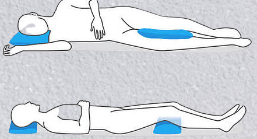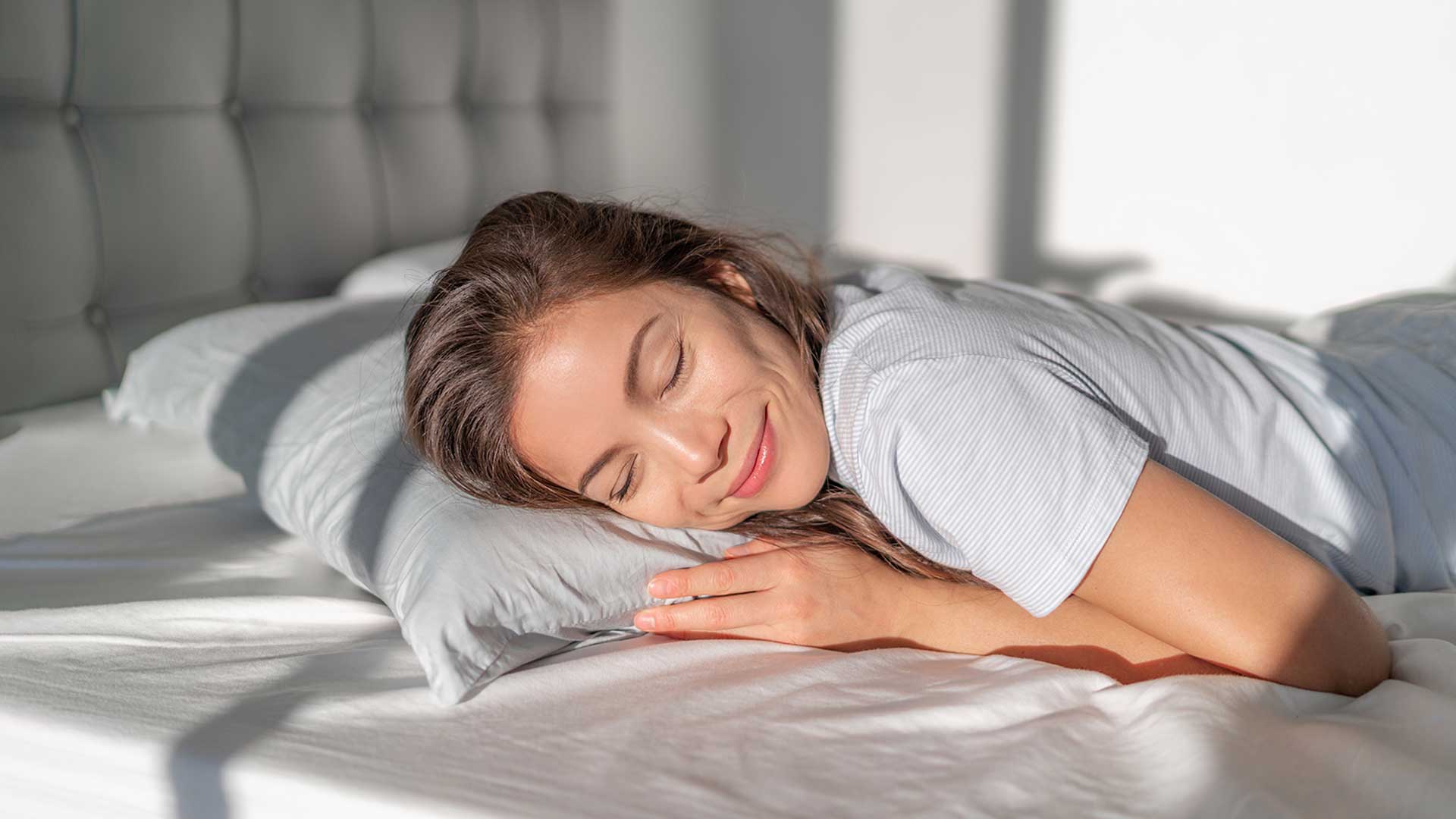Sleep is vital to overall health and wellbeing. A consistent lack of quality sleep raises the risk of many diseases, disorders, and bodily inflammation. The next time you consider staying up late to finish that tedious work project, binge your favorite Netflix series, or clean-up the house after the family is asleep, remember the many miraculous benefits of sleep:
- Restores energy production
- Cleans and organizes the brain – supports storage of memories
- Promotes rest for the heart and vessels o Lowers risk of heart disease and allows for blood pressure regulation
- Releases growth hormone, which promotes muscle and cell recovery o Assists in adolescent growth
- Dispenses cytokines, a crucial immune system ally
- Sleep lowers inflammation in the body
Sleep interruptions will produce diminishing returns on all these benefits, so let’s tackle sleep posture to remove one of the barriers to getting a great night’s rest.

First let’s get the stomach sleepers attention! Are you listening? You must give it up. Sleeping on the stomach is the one position that is not recommended for two reasons: it affects the neck and low back. While stomach sleeping, the head is rotated for hours at a time, which puts the facet joints (little joints on the back of the spine) in an extreme and stressful position. If you’ve ever woken up with a “kink” in your neck, it’s likely you’ve aggravated and caused inflammation to a facet joint. Also, long periods of lying on one’s stomach causes the low back to arch, due to the pull of your body into the mattress, which adds stress to the same facet joints, but in your lower spine. 80% of low back pain is associated with facet joint dysfunction. Let’s take better care of them..
So how should you sleep? Approved sleep postures are side and back sleeping. Side sleeping is a bit more complicated, so let’s begin with back sleeping. Facet joint irritation can occur in the low lumbar while lying flat on one’s back, so adding a pillow, or two, or three removes the arch from the lower lumbar spine and moves it to the knees. When lying in this position, it’s best for the neck to be without a pillow, as most of us have a head-forward posture and should take every opportunity for the back of our head to be in-line with the upper back. This can help recreate the curvature in the neck that has become lost overtime, due to poor posture and trauma. Furthermore, tucking your shoulders back to open the chest will create space for better upper back posture.
Side sleeping is a great choice too but requires more propping. A pillow between the knees will help keep your hips and lower spine neutral and is typically very helpful for those with low back pain. The pillow that supports your head should be as thick as the space between your ear and shoulder and made of a material that does not compact when the weight of your head is place on it. We recommend staying away from down feather. When you lay on your side, stack your shoulders to prevent them from rolling forward and creating poor upper back posture. A pillow placed against your chest can give your arms something to rest on and keep the upper shoulder from rolling forward when your body is relaxed. I know what you’re thinking, “That’s a lot of pillows!” Yes, it is. But your spine and muscles will thank you.
Now you have the tools and possibly the motivation. But sleep changes don’t typically happen overnight (pun intended). Give it time, be patient with yourself and with time the changes you are trying to make will come.
Relaxation Herbs

Passion Flower: works by increasing gamma-aminobutyric acid (GABA) in the brain. GABA is a naturally-occurring amino acid that reduces activity in the central nervous system. This results in relaxation, enhanced mood, better sleep, and pain relief.
Lemon Balm: Aids in reducing stress and anxiety, even on the toughest days.
Chamomile: It contains apigenin, an antioxidant that binds to certain receptors in your brain that may promote sleepiness and reduce insomnia, or the chronic inability to sleep.
Kava: Most potent relaxation herb. Relaxes the muscles without sedating the brain. Reduces stress, anxiety, and insomnia. Works best when taken a couple of hours before bed.

